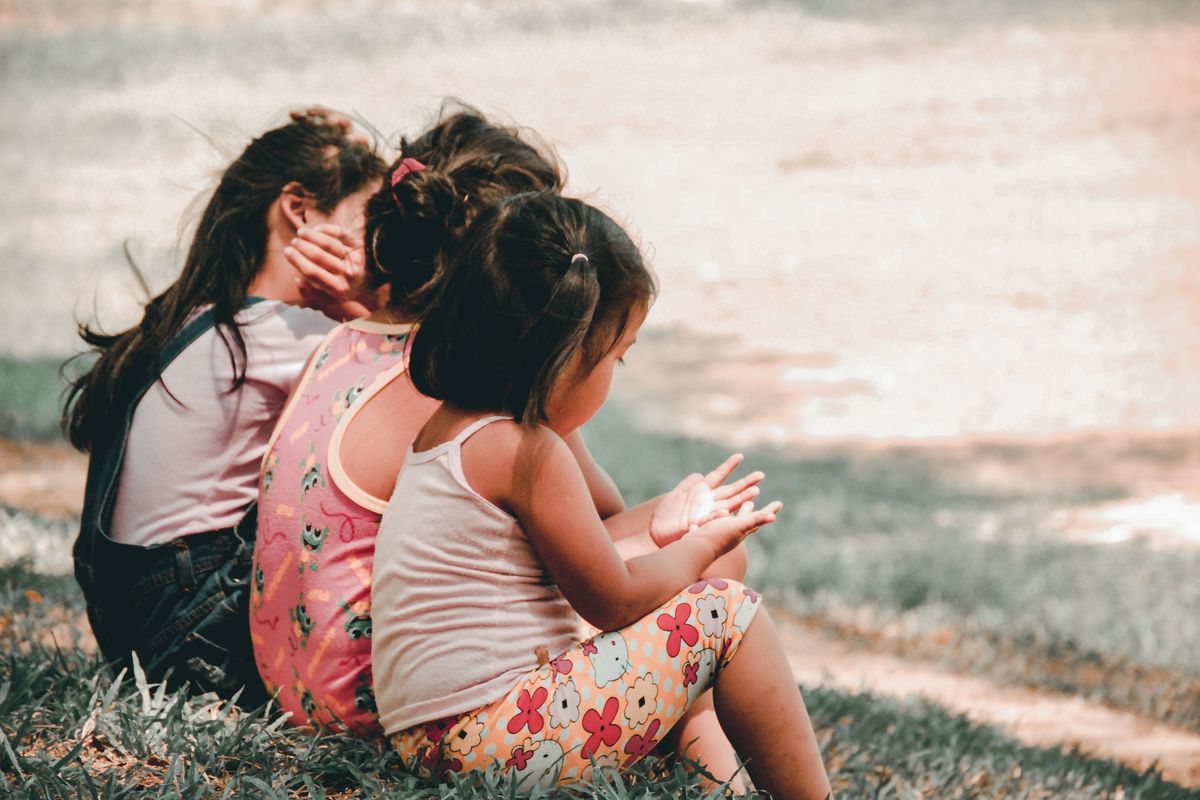Child marriage within the U.S. is a frightening reality
Child marriage, or marriage before 18, remains legal in 46 U.S. states, as well as three U.S. territories, including the District of Columbia. This is not a dystopian nightmare. It's a reality.

Three children sitting on grass
Imagine if a child could be entered into a legal marriage, with no input from them – then forbidden to file for divorce. Imagine if the child were not allowed to leave home and seek help if the marriage turned abusive.
This is not a dystopian nightmare. It's the reality in much of the United States.
Child marriage, or marriage before 18, remains legal in 46 U.S. states, as well as three U.S. territories, including the District of Columbia. Typically, these marriages are approved with nothing more than a parent's signature on a form, known as "parental consent." This is often "parental coercion," and sometimes, a judicial rubberstamp.
Meanwhile, the age of adulthood remains 18 or higher in every state. This unconscionable legal contradiction – children entered into marital contracts before they have the legal rights they need to navigate such a serious contract – very much puts the "lock" in "wedlock."
I am a forced marriage survivor, and I founded Unchained At Last to combat forced and child marriage in the U.S. by helping individuals escape these marriages and pushing for relevant legislation. Here is what Unchained has found working with hundreds of survivors and researching legislation in every U.S. state.
When an adult in the U.S. escapes a forced marriage, their parents are planning for them or fleeing a forced marriage that already happened, Unchained's initial first step is to help the child leave home and safety get them to a domestic violence shelter.
However, children who leave home are typically considered runaways. Police search for them and take them into custody or drag them back home. If Unchained helped a child to leave home, staffers could face criminal charges.
Besides, where would the child go? In Unchained's experience, most domestic violence shelters across the U.S. do not accept children who are unaccompanied by a parent or guardian, because of the potential legal liability minors bring. Youth shelters are not a solution: Shelters typically notify parents when their children are there and house children only for about three weeks while they work on a reunification plan. Child-protective services aren't a solution either.
Caseworkers across the U.S. tell Unchained that preventing legal marriages is not in their mandate. Those fleeing a forced marriage often have complex legal needs, but contracts with children, including retainer agreements with attorneys, usually are voidable or void. Thus, only the most generous attorneys would agree to represent a child.
Perhaps most shockingly, children typically are not allowed to initiate a legal proceeding unless they act through a guardian or other representative. Often, this means they are not allowed to file for divorce or, if their spouse is abusive, to seek a protective order.
When children reach out to Unchained and learn about their limited options, they often despair and go along with a forced marriage, knowing it means they will be raped on their wedding night and thereafter. Children also know they probably will be pulled out of school and their dreams for their future will be destroyed. Many turn to suicide attempts and self-harm.
This is not a small problem. Unchained's groundbreaking research found an estimated 248,000 children as young as 12 were married in the U.S. between 2000 and 2010. Almost all were girls wed to adult men.
These girls face all the hurdles described here if they try to say no to marriage, before or after it happens, but their adult husbands do not. Think about the power imbalance that creates.
Even when child marriage is not forced, its devastatingly impacts girls enough that the U.S. State Department has called marriage before 18 a "human rights abuse." The repercussions are long-lasting and affect nearly every aspect of a girl or woman's life.
Child brides in the U.S. are 50 percent less likely to finish high school and four times less likely ever to finish college. They are three times more likely to have five or more children and 31 percent are more likely to end up living in poverty. They face a 23 percent higher risk of heart attack, cancer, diabetes and stroke, and an increased risk of psychiatric disorders. Globally, child brides are three times more likely to be beaten by their spouse.
The solution is simple. Unchained now leads a growing national movement to pass legislation in every state, territory and district at the federal level, eliminating legal loopholes that allow marriage before the age of adulthood. So far, Unchained has seen legislative victories in Delaware, New Jersey, Pennsylvania and Minnesota, as well as the U.S. Virgin Islands and American Samoa.
Imagine if the rest of the U.S. did the same.
Please join Unchained in making that happen. Go to unchainedatlast.org to see how you can help end child marriage in the U.S.
Fraidy Reiss is a forced marriage survivor and the founder/executive director of Unchained At Last, a nonprofit that works to end forced and child marriage in the United States through direct services and advocacy.


